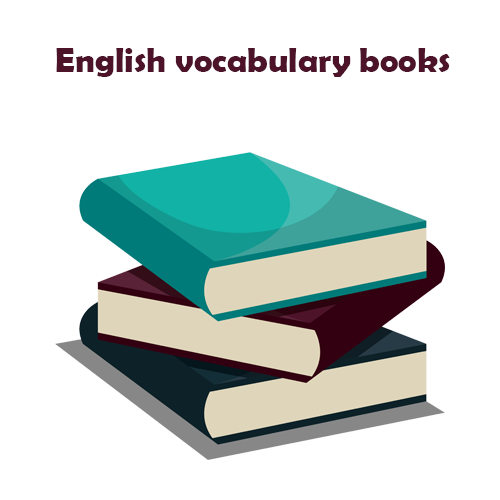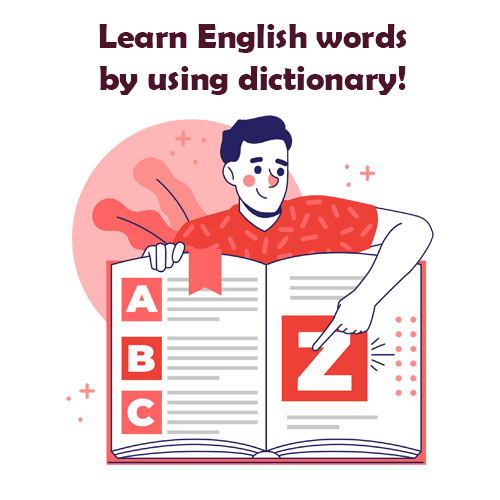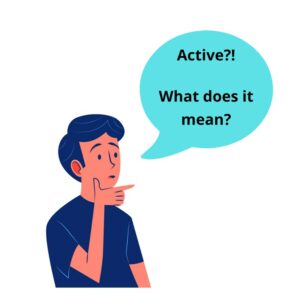How to improve English vocabulary ? What are the best ways for learning new vocabularies and keeping them in our mind? Read this article carefully to learn perfect tips to improve your English vocabulary.
Imagine you want to learn a new language (for example English). What is the first thing you will do? Most students (even advanced level students ) begin by learning new English vocabulary and words using mobile applications, books, online language courses, or websites such as YouTube. In a student’s mind, learning new words is the most important step in learning a language (in order to improve English speaking , grammar and vocabulary).
As a student of English, it’s necessary to learn new words. However, it is not okay to be obsessed over the number of words you can learn.
After all, it’s not about quantity.
How many English words should I learn?
The obsession over the number of words has become a standard for choosing English books or English courses. They usually don’t know how to improve English vocabulary by reading English books. Imagine you go to a bookstore and you see 3 books:
- The first book teaches you 1,000 new words and it has 100 pages.
2.The second book has over 2,000 new words and it has 70 pages.
3.The third book teaches you 2,000 new words and it has 120 pages.
Which book will you choose? The more the merrier, right? Most students would definitely prefer the second option, as it teaches more words in fewer pages.
The same is true for courses. I’ve been teaching English for more than 12 years now and the number one question students ask me is ” How to improve English vocabulary and how many new English words will I learn by joining your English course?”
What do you think about this? Do you think the number of words you learn is the single most important thing about learning a language?
If so, let me introduce you the best book with which you can dramatically improve your level of English:
If by learning more and more words you can learn a language, why don’t you read a dictionary? I’m sure you would agree that it’s not a good way to learn English. Do you know why? Because to learn the English language effectively (and by effectively I mean to be able to communicate), you need to focus on 6 aspects: Vocabulary, Grammar, Reading, Writing, Listening and speaking.
✅Vocabulary
✅Grammar
✅Reading
✅Listening
✅Writing
✅Speaking
Unfortunately, most students focus on learning new English words all the time without paying attention to their other skills. This is why one of the most common questions students ask me is:
I know many English words, but when I want to speak or write in English, I can’t use any of them!
They don’t know how to improve English grammar , vocabulary and speaking together to take their English to the next level!
In this article, I’m going to talk about this problem and I will show you how to improve English vocabulary and learn new words..
Active VS Passive English vocabulary
How to improve English vocabulary by using active and passive words correctly?
The reason why you learn many words but you cannot use them when you are trying to speak or write in English is because the words you have learned are not active. Active?! What does it mean?
The words you memorize can have two different forms in your head: active or passive.
| Active words | active vocabulary are those you can use to make sentences while you are writing or speaking in English. |
| Passive words | passive vocabulary are the ones that you cannot use to make sentences. However, if you see them in a text or if you read them somewhere, you will recognize them and you will know the meaning. |
Now I have a question for you: which one is better? Knowing 1000 passive words or knowing 100 active words?
Well, if you know 1000 words but they are all passive, you won’t be able to speak! On the other hand, if you know 100 words and you are able to make sentences using those words, you will be able to communicate in English. Therefore, learning a few active words is more effective than learning a high number of passive words. Or let’s put it this way: focus on quality of the words you learn, not quantity.
Now that you know the difference between active and passive vocabulary, how can you activate your passive vocabulary? How to improve English vocabulary by learning new words and make sure they are active and not passive in your head? Don’t worry! I am going to show you 5 steps to learn new English words and improve your English vocabulary in an active way, so that you can use the words you have learned in order to communicate in English. What are these five steps? Let’s have a look!
Learn more: common mistakes in English
How to improve English vocabulary in 5 steps?
Step 1: keep a personal dictionary for the new English words you learn
This is a very simple yet effective step in learning new English words. Have a notebook or a notepad and write down every new word you see, hear or read. By using an online dictionary, write down the meaning of the word, too. Have your dictionary with you all the time.
Let’s say you learn 3 new words: Crime, punishment and law. Your dictionary should look like this:
| English new words | Meaning |
| 1- crime | Something someone does that is illegal |
| 2- punishment | Make someone suffer because they have done something bad |
| 3 – law | an official rule in a country |
A very important note: most students usually stop here. They just make a long list of new vocabulary, but as I explained earlier, this will make the words passive in your head and you will never be able to use them in order to communicate in written or spoken English. To make these new English words active, there are four other steps you need to take!
A very important note!!!
Most students usually stop here. They just make a long list new vocabulary, but as I explained earlier this will make the word passive in your head!
Step 2: Make example sentences with the new English words in your personal dictionary
knowing the meaning of a word is not enough. You learn new words in order to either express yourself (writing and speaking) or understand others (reading and listening). To do so, you need to know how to use the new English vocabulary in a sentence.
Make at least 3 sentences for each new English word you have added to your personal dictionary.
How to improve English vocabulary by making example sentences with new English words?
Here is what you need to do
You need to make at least three sentences for each new English word you have added to your personal dictionary. This can be done based on your level. If you are a beginner student and you are not sure whether your sentences are correct or incorrect, you can use the examples provided by the dictionary. For intermediate and advanced students, I highly recommend making the examples on your own. You can also mix it up: use a couple of examples from the dictionary and make a few examples on your own!
| New English words | Example sentences |
| 1-crime |
|
| 2-punishment |
|
| 3-law |
|
Now you know the meaning of the new words you have learned and you know how to use them in a sentence. What’s next?
Read more: Learn about the several ways of asking for and giving advice
Step 3: Learn how to improve English vocabulary by learning English collocations
What is a collocation?
A collocation is a group of words that are often used together. In other words, a group of words which often sit together in a sentence.
For example, take the word “crime”. “crime” is a noun. Can you name some adjectives that you can use with the word “crime”? Do you know what verbs I can use to talk about crime? The verbs and adjectives that can be used with the word “crime” are collocations of this word.
But there are too many words in English. How can we know the collocations of these words? Don’t worry! There are many online collocation dictionaries that you can use to find out which nouns, verbs and adjectives can be used together. OZDIC is my favorite collocation dictionary. If you go to OZDIC and search for the new words you have learned, you can see its collocations.
Write down some adjectives and some verbs that collocate with the word you have learned. Then, make example sentences using different adjective, verb and noun collocations. Mix them up and be creative!
| New English words | Verb collocations | Adjective collocations | Example sentences mixing the noun, verb and adjective collocations |
| 1-crime |
|
|
|
| 2-punishment |
|
|
|
| 3-law |
|
|
|
By now, you have learned a new word and have added it to your dictionary. You have written the meaning of the word with some example sentences. In addition, you have written down some collocations. What now?
Read more: Learn about English slang words
Step 4: use each new English word and its collocations to write paragraphs
This step is similar to step 2, in which you make example sentences. However, this time you are not writing single sentences, but you are writing a mini story using the word and its collocations.
| New English words | Short paragraph using the word and its verb and adjective collocations |
| 1-crime | Yesterday, I went to the police station to report a violent crime. Somebody had mugged one of my neighbors. In my opinion, mugging is a dreadful crime and it should never be committed! But the mugger carried out this horrific crime and escaped! |
| 2-punishment | A mugger should receive harsh punishment. After all, anyone who commits horrific crime deserves severe punishment. Of course, criminals will have lawyers to avoid heavy punishment, but the law should make sure no one will escape their punishment! |
| 3-law | I believe law should be obeyed, whether civil law, administrative law of international law. But who will enforce the law? The civil law is enforced by the police, while international law should be enforced by international organizations such as the UN. Anyone who violates the law should receive sever punishment! |
And that is it! Oh wait, we missed an important step!
Step 5: review the new English words in your dictionary periodically
You cannot expect to learn a word by just reading it once. You need to review the new words you have learned from time to time. However, instead of reviewing by reading the words and their meanings (which can be quite boring), review by reading the paragraphs you have written in Step 4. In this way, you will review the word, its collocations as well as its use in context.
Review the new words you have learned by reviewing the paragraph you have written in step 4!
The conclusion of how to improve English vocabulary
Learning English words and improving your English vocabulary is an important step in learning the English language. There is no doubt that without words, we will be left speechless! There will be no communication without words. However, learning English words is one out of 6 things you as a language learner should focus on. Focusing solely on words will lead to a big issue:
I can’t speak even though I know many words!
Learning words is important, but what is even more important is learning how to use the new words in communication! To do so, the words you learn should be active, and not passive! By following the 5-step plan I discussed earlier, you will be able to learn new words in an active manner!
Learning new words is important, but learning how to use the new words in communication is even more important!
Of course, following these 5 steps will be very time-consuming and therefore, you will learn fewer words compared to traditional word-learning methods. However, remember that it is not about quantity, but quality! Knowing 100 English words and being able to use them in communication is much better that knowing 2000 words, but being unable to speak!
Bottom line: There are no shortcuts in learning!
Spend time, be consistent and have the right strategy. You will 100% succeed!











Very interesting
Glad you liked it!
Thanks 😊
It’s the best article I have ever read 📚
Its literally helped me a lot..Thank you Sir❤️🩹
I’m very happy to read this article is very good
I got a lot of interesting information from reading and listening to this article and believe me your teaching and explaining style is so easy, interesting and good that hardly anyone else has such a good style. And the article is also very attractive.Your are doing a good jon keep it up.
You’re amazing as a teacher❣️
Wow! Thanks Jessica!
This information is just what I am looking for. This is a really useful article, thank you so much teacher , you’re the best
You are amasing. I love the way you introduce a topic.
You are such a great teacher I ever met. Your ways to teach is breathtaking
hello its excelent
Hello
How much
You are such a great language couch than a ordinary teacher. I found my way to learn english as an easy way through your teaching. As I am non native speaker that, I am very thankful to your postes on youtube channel by subscribing most of the free.
Thanks so much Teacher Maddy.
like it so much and for sure I will use those in my teaching profession.
Thank you Teacher Maddy, I am one of those people who knows a lot of words but can never use them when I speak. Your article has saved my life. Greetings from Venezuela.
Very important informations
Thanks for your info, teacher🥰💫
English
Hi ,
Do you have most important word list to share with us ? İf you dont have it ,Where Should we start first ?
You are the best teacher ❤️